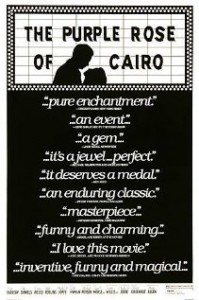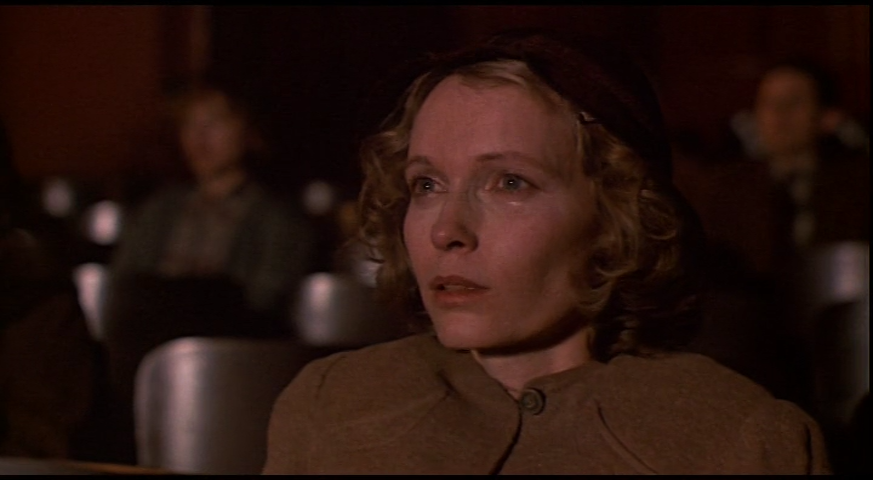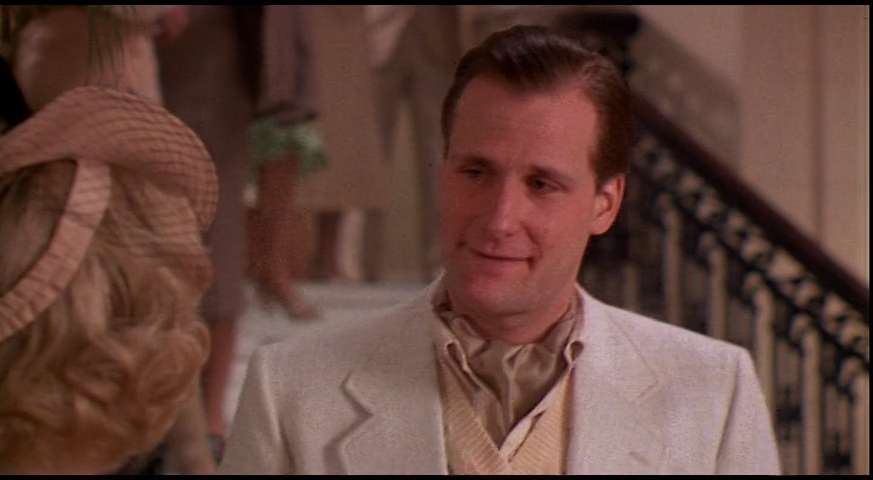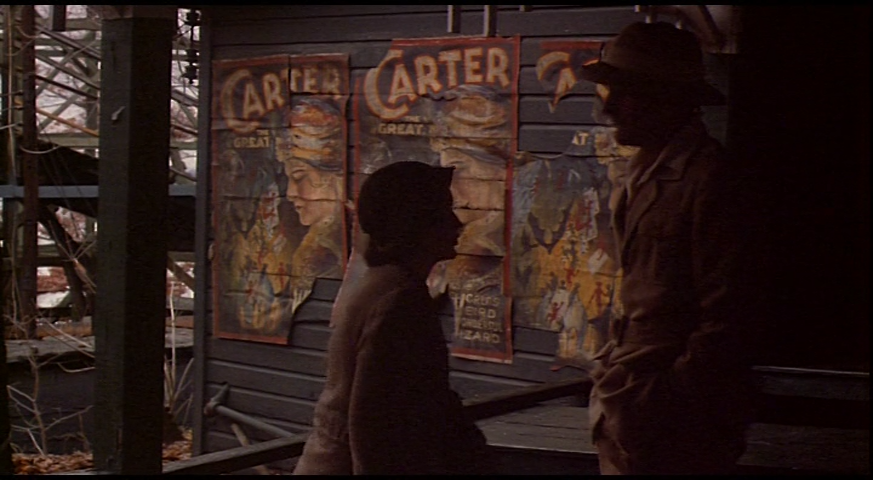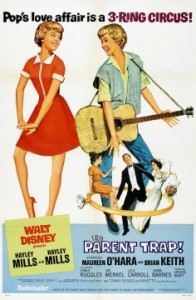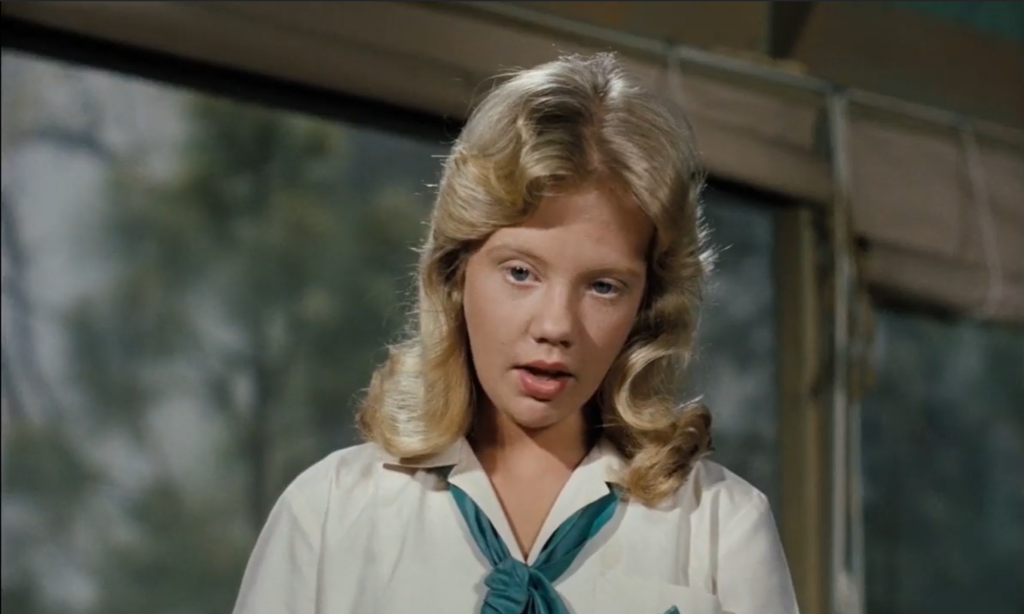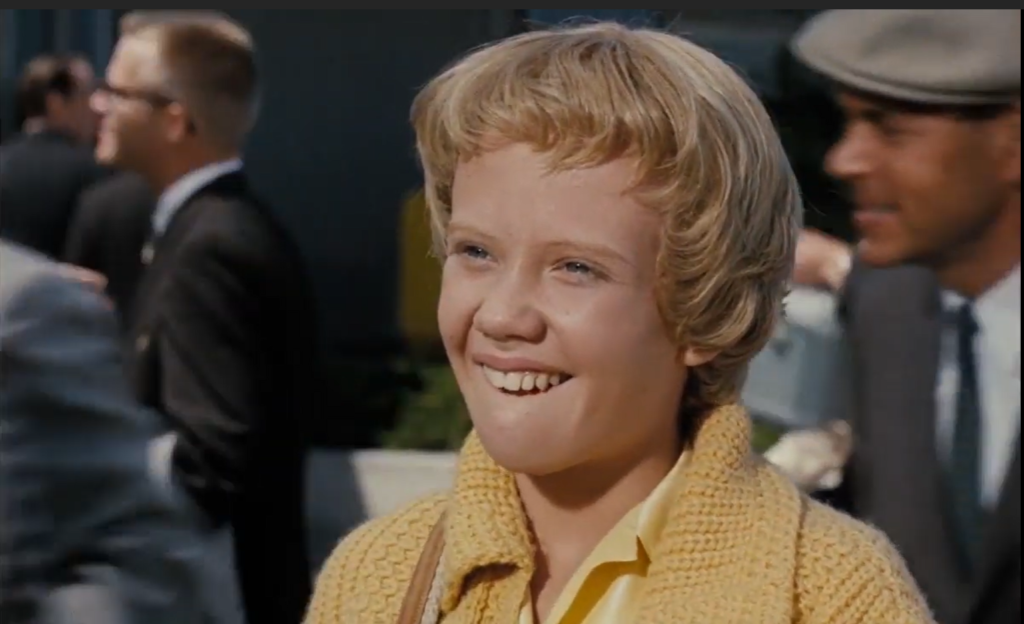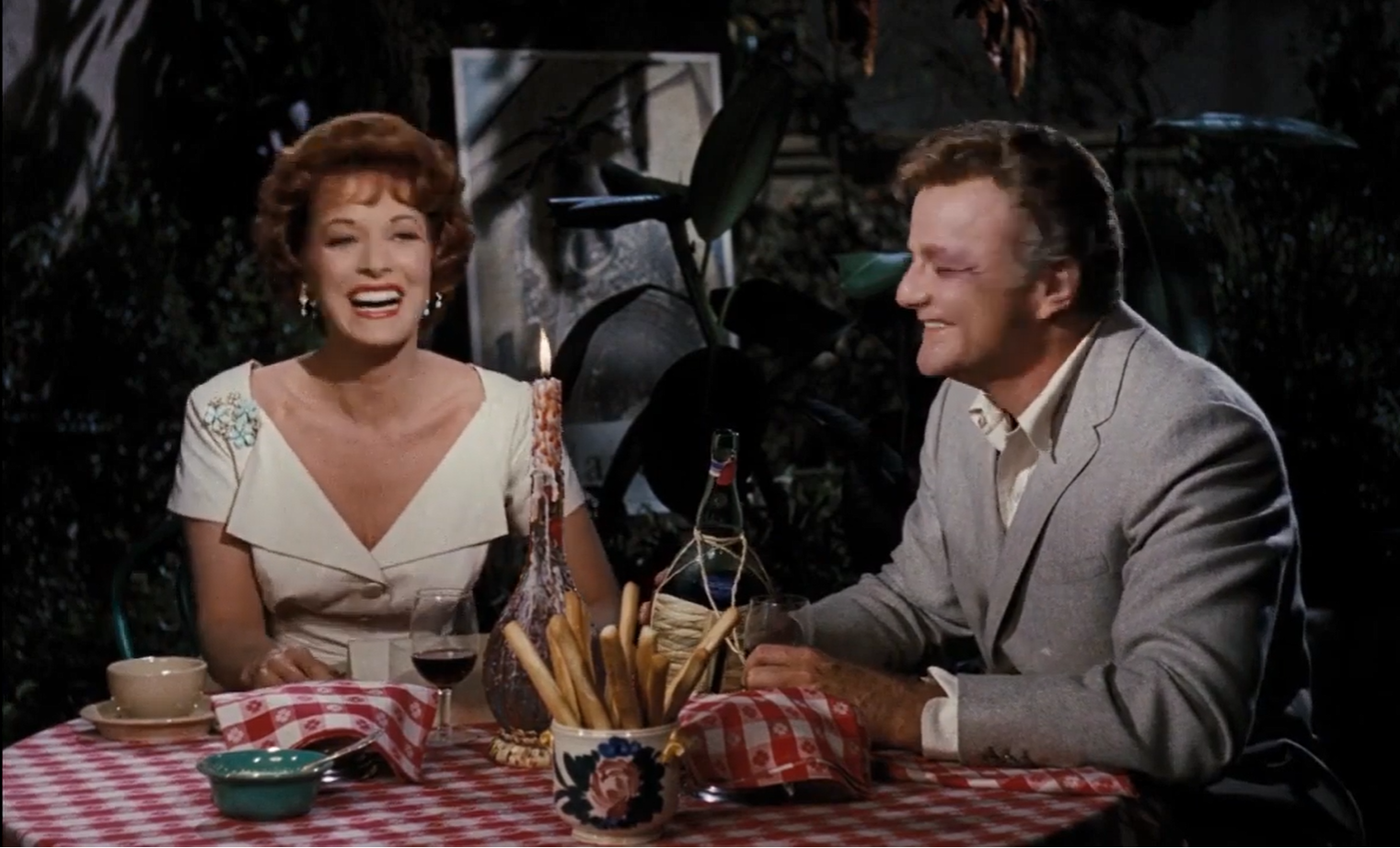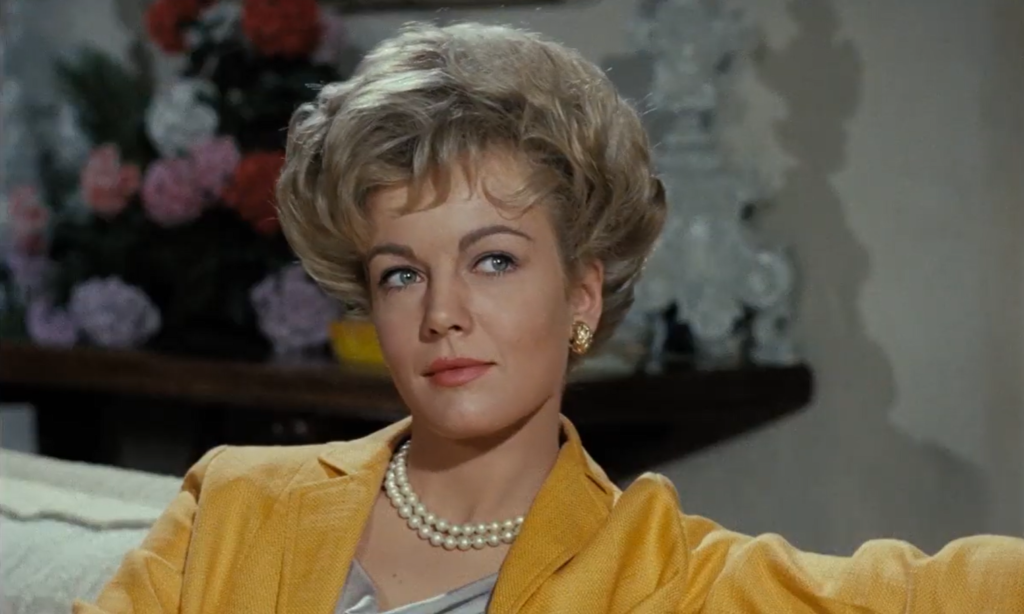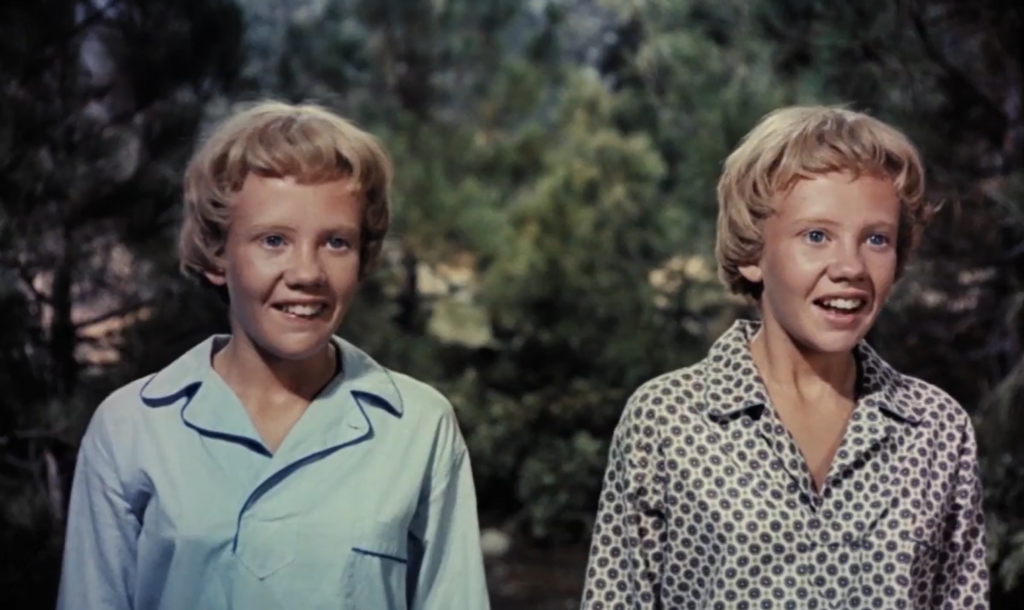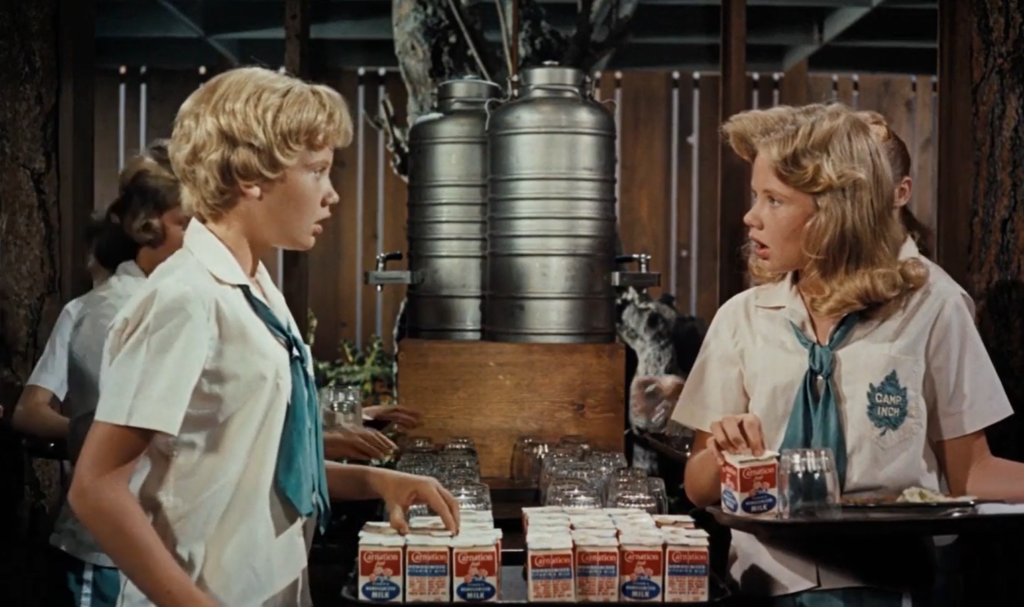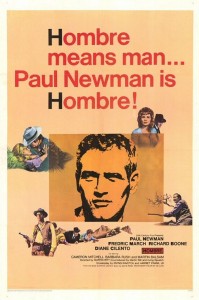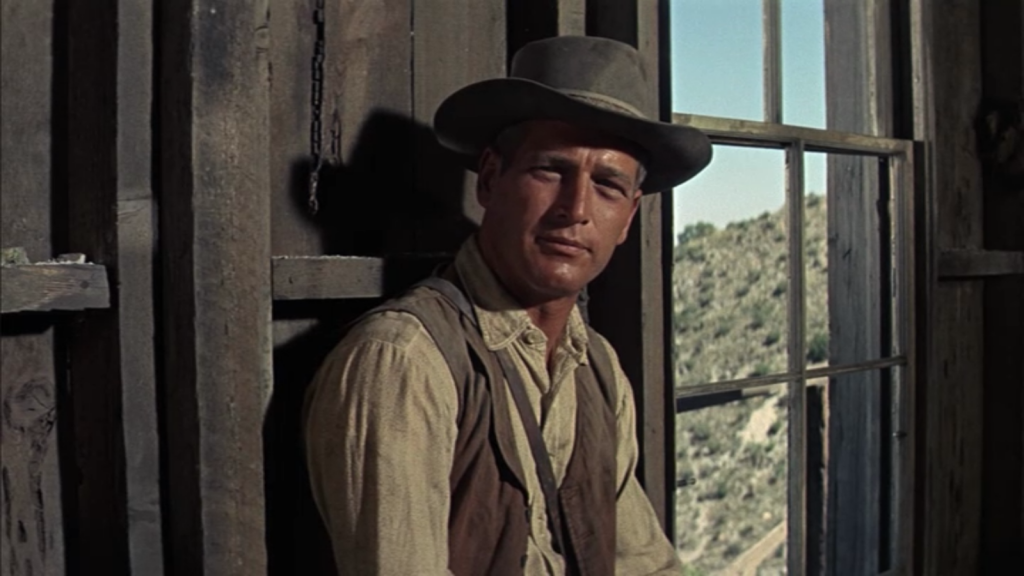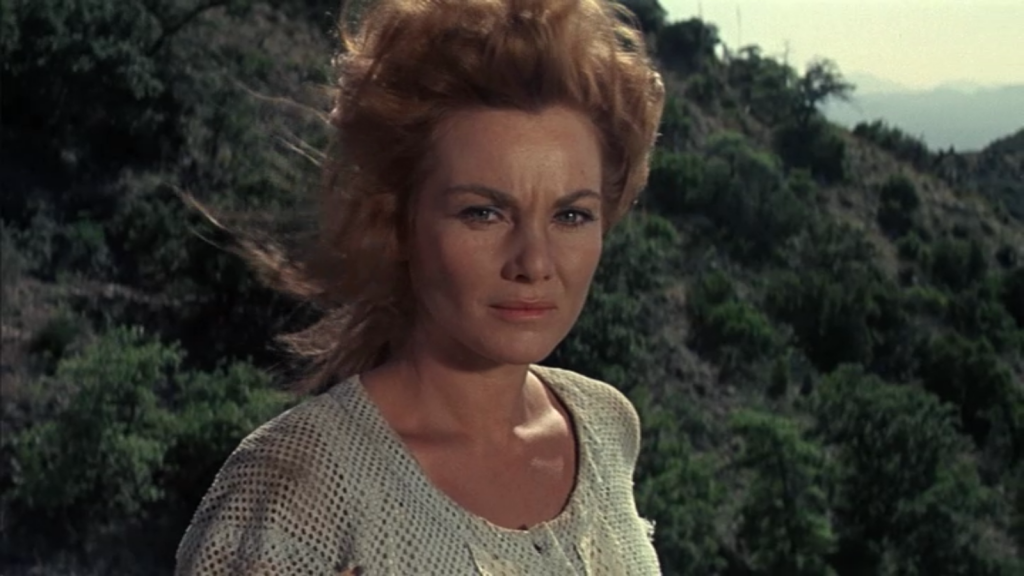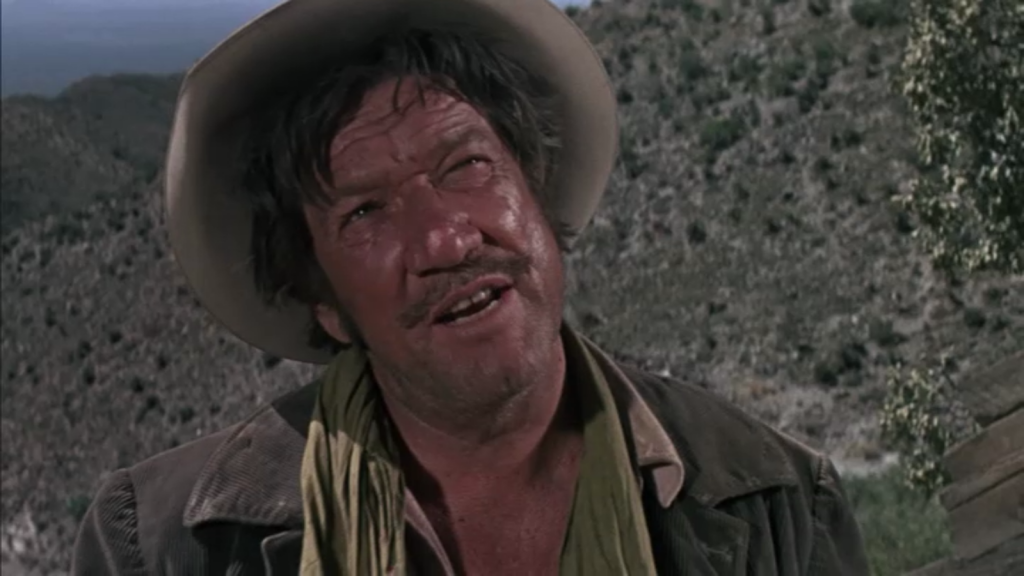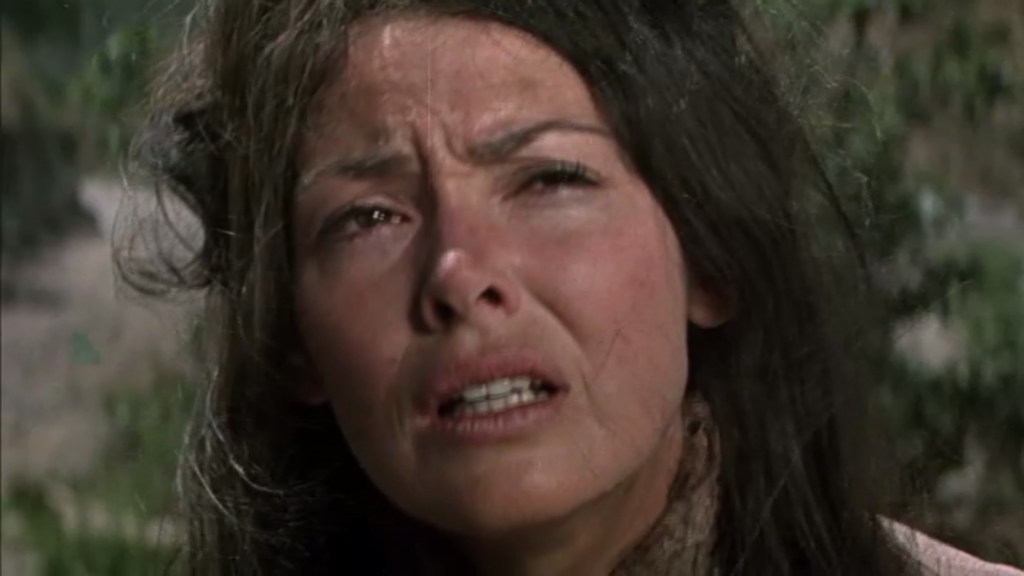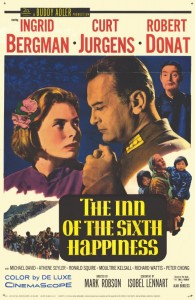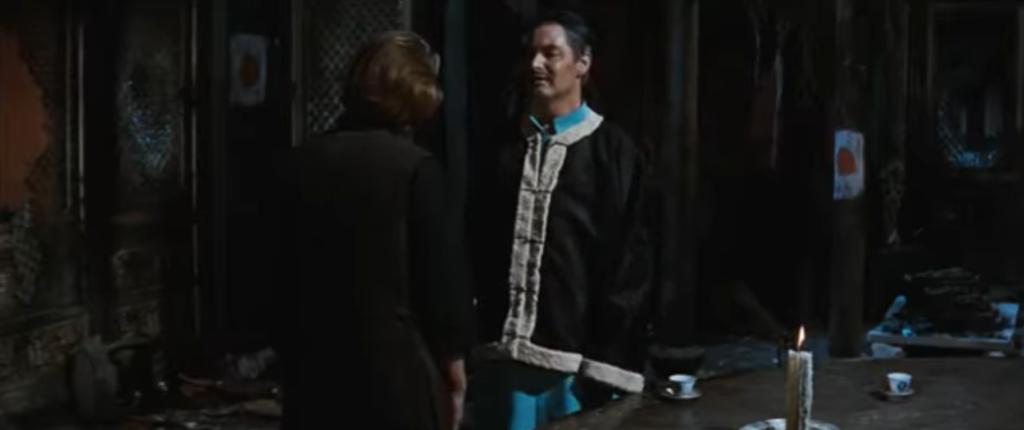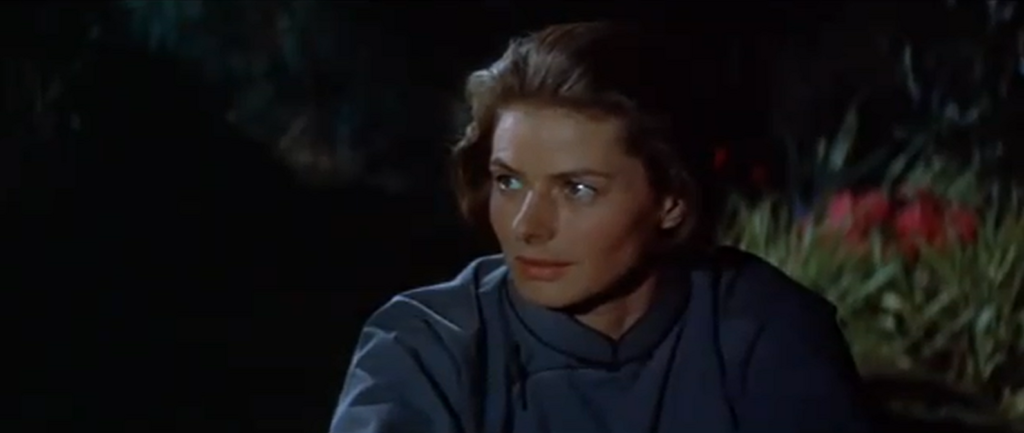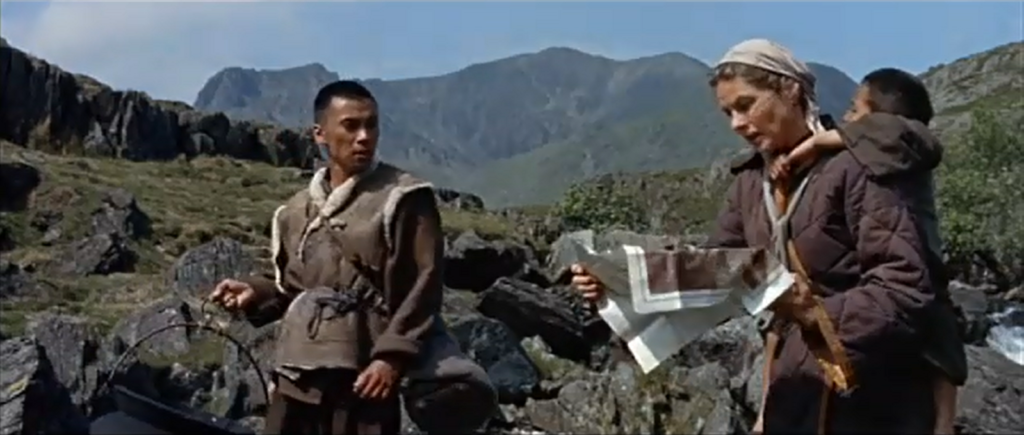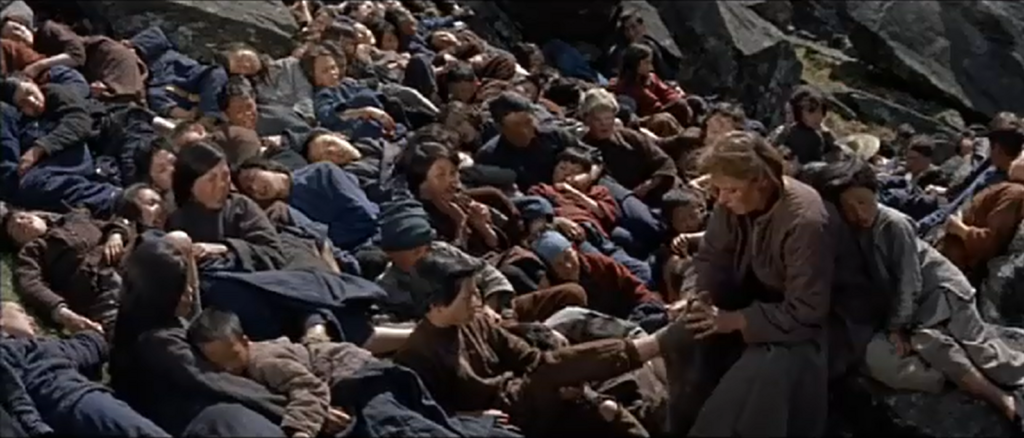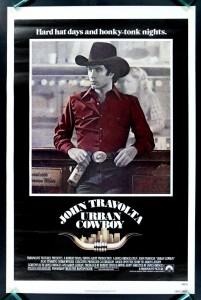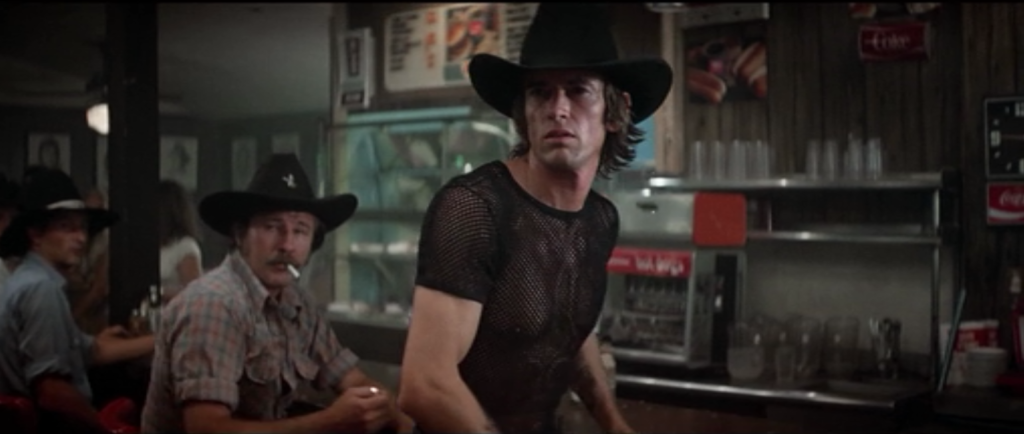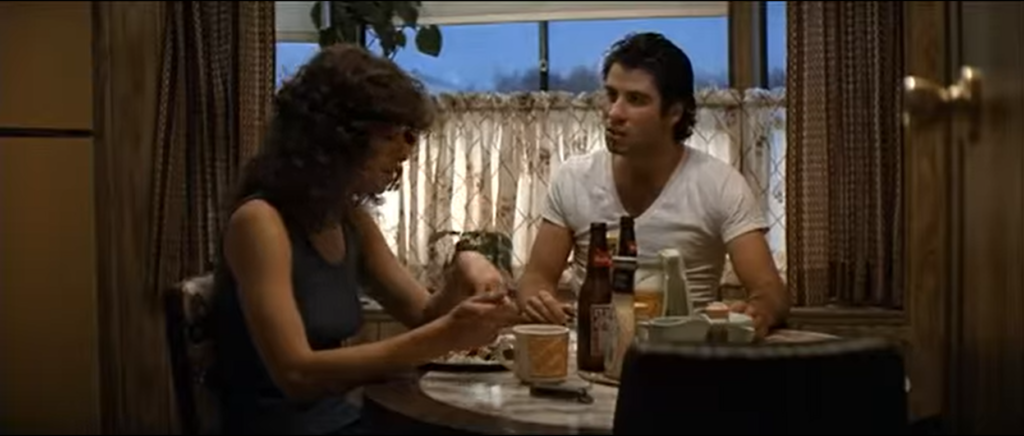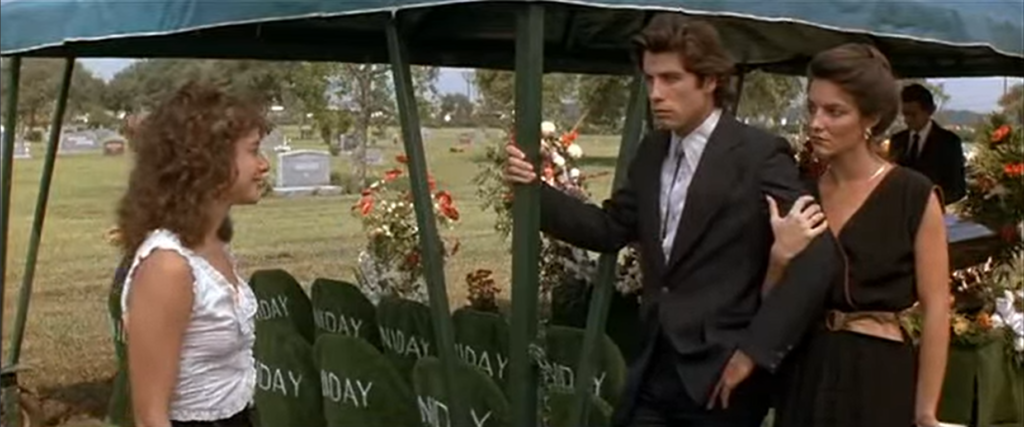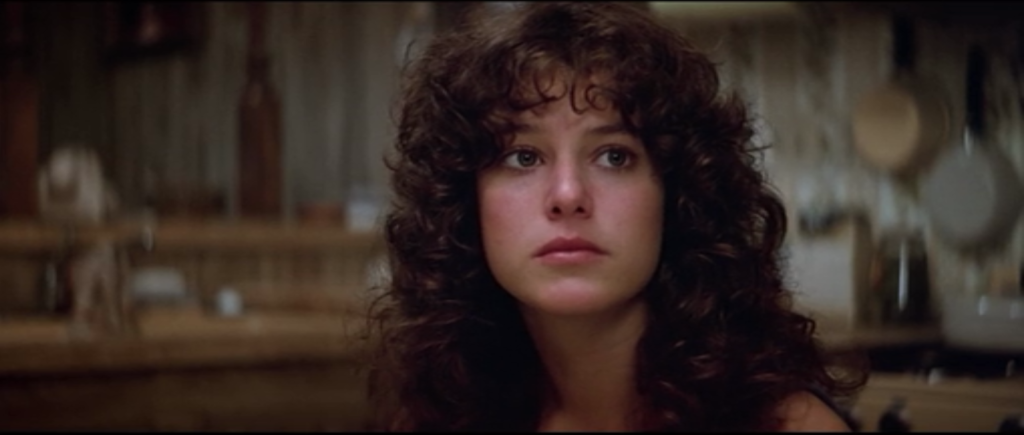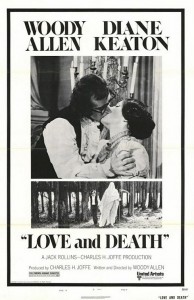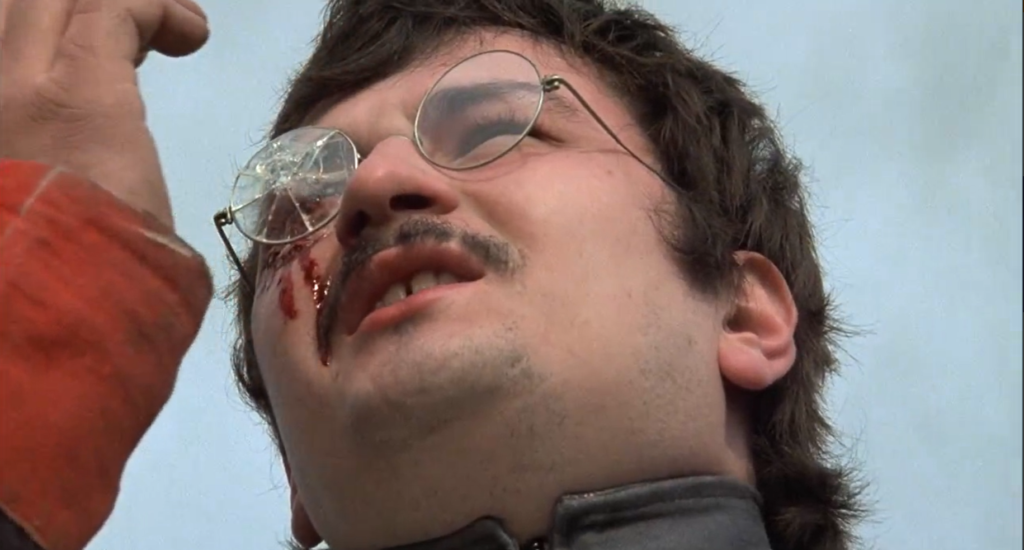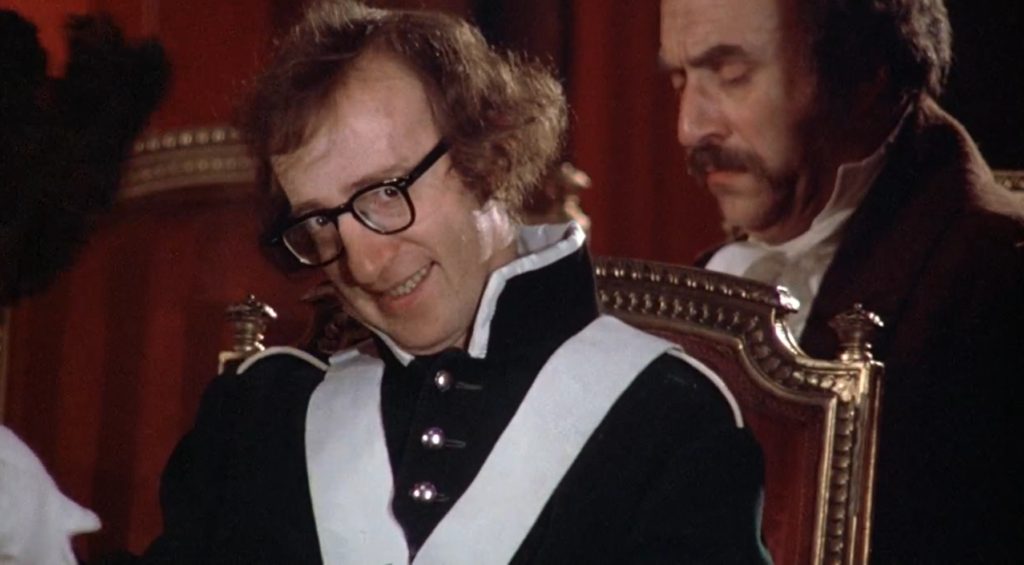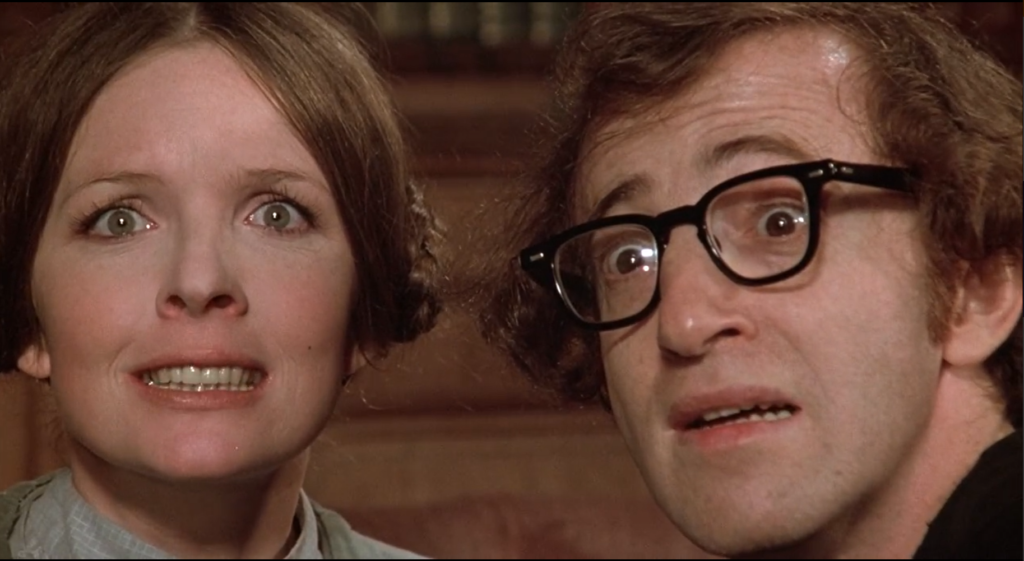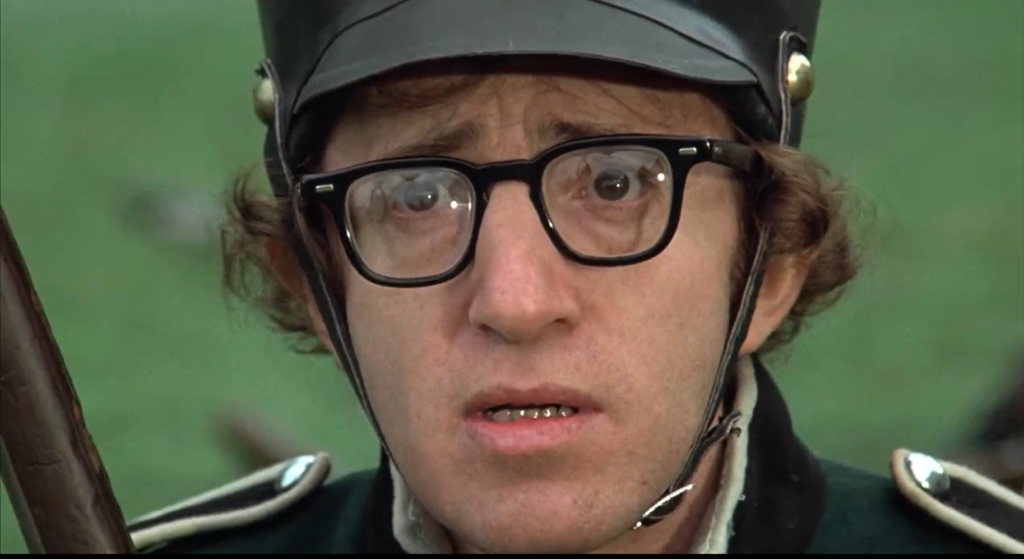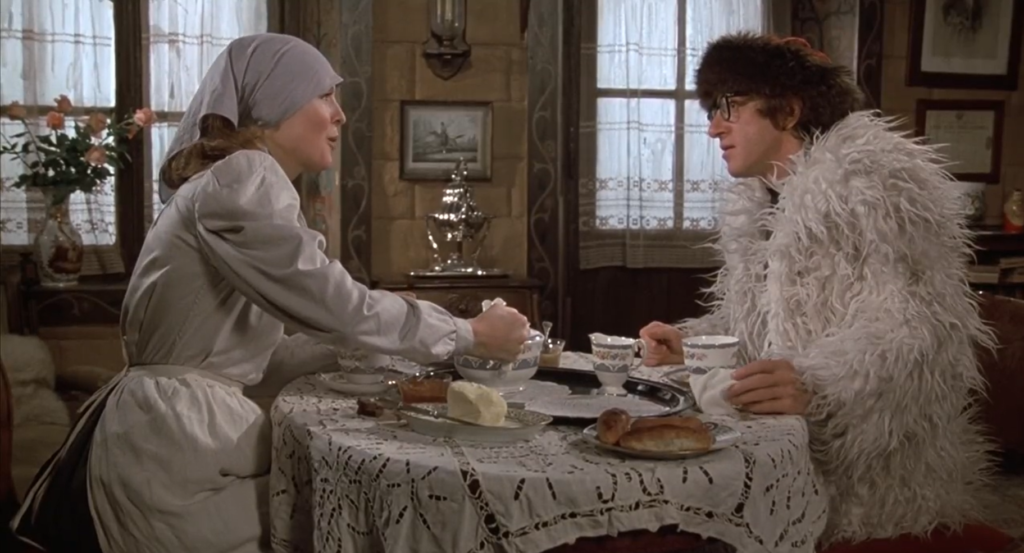Purple Rose of Cairo, The (1985)
“What good is perfect if a man’s not real?”
|
Synopsis: |
|
Genres, Themes, Actors, and Directors:
Response to Peary’s Review: SPOILER ALERT FINISHED Peary notes that “perhaps Woody Allen decided not to be in his sourest comedy because as director-writer he plays such dirty tricks on all his characters”, given that “nobody ends up happier than when we first see them”. That’s actually not entirely true, but his point is that TPROC doesn’t have a traditional happy ending (though Allen himself, who refused to change the ending despite studio pressures, insists it is a “happy ending”). Peary laments the fact that Farrow’s “lonely, miserable soul” — with a “rough, cheating, good-for-nothing husband” — is “for the first time [given] a chance to escape her sad existence”, yet ultimately isn’t “allowed” to (by Allen, who apparently decided “that her escape into a fantasy world would be unrealistic“). Peary argues that perhaps Allen is “trying to tell us that those unhappy people who use movies to escape from their problems are only deceiving themselves” — a decidedly “gloomy theme, because someone like Farrow has no other way to soothe her sorrow”. Peary does concede, however, that “on the other hand, Allen’s film may also be a tribute to the cinema for having the power to help one escape” — and this is certainly the overriding feeling one leaves with by the (admittedly depressing) ending. Peary notes that Allen references “Pirandello and Buster Keaton’s Sherlock, Jr.” in his decision to have a movie character (“Tom Baxter”) “walk off the screen and strike up a romance with Farrow”, and it’s important for film fanatics to be aware that the basic premise of TPROC didn’t originate with Allen. (Go check out Sherlock, Jr. immediately if you haven’t done so already.) But Allen goes even further than Keaton in his envisioning of how such a fantastical scenario might play out, with the remaining characters on-screen — decidedly put-out by having their familiar narrative interrupted (by a “minor character”, no less) — ultimately simply sitting around impatiently waiting for “Baxter” to return. Meanwhile, the actor playing Baxter (Daniels) worries simply about how “Baxter”‘s actions might affect his nascent career, and studio heads fear legal recriminations. Though Peary argues that “Allen doesn’t handle the actor-out-of-the-screen premise as inventively as one would hope”, I disagree — I find the entire screenplay cleverly conceived and handled, with seamless special effects (helped by Gordon Willis’s masterful cinematography) allowing us to believe that the b&w characters up on-screen really do possess a life of their own (albeit one realistically limited by the constraints of the script’s trajectory). Meanwhile, fine performances by Farrow and Daniels ground the entire film, making us root for these characters in their unlikely predicament. Allen keeps us in suspense until the very end, wondering how things will ultimately turn out — and while you may or may not agree with his final choice, it at least makes “logical” sense. Redeeming Qualities and Moments:
Must See? Categories
(Listed in 1001 Movies You Must See Before You Die) Links: |
